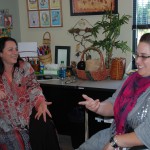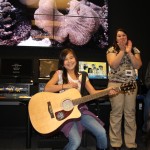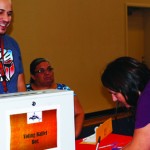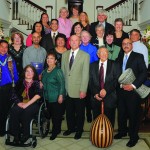Press Release, Neil Parekh, Vice President of Marketing and Communications, United Way of Snohomish County
(Everett, Wash.) — United Way plans to invest in programs that support the optimal development of children and youth, improve access to basic needs and ensure that residents in Snohomish County are connected and engaged with their community.
Snohomish County nonprofits must meet certain minimum eligibility requirements and have or plan to establish programs that address the priorities identified by United Way’s volunteer-led Vision Councils. Applicants must submit a letter of intent (submitted online) by December 20. Potential applicants are invited, but not required, to attend one of two Bidders’ Conferences: Tuesday, Nov. 27th from 10am – 12pm or Tuesday, Dec. 4th from 10am – 12pm. More information is on United way’s website at www.uwsc.org/programgrants.php.
“This is a volunteer-driven process,” said Dennis G. Smith, president and CEO of United Way of Snohomish County. “Every three years our volunteer committee members meet with experts to understand the needs of our community. Based on that work, they identify priority investment areas. Once proposals are submitted, our volunteers will review and make decisions on where our donors’ contributions will best be invested.
Award decisions will be made in May 2013.
The priority investment areas for the 2013-2016 funding cycle fall into three categories:
1. To ensure the optimal development of children and youth in Snohomish County, United Way will support programs across the youth spectrum, from birth to age 18. We will do this by investing in programs that focus on early learning, after school programs, foster care, and family engagement and support.
2. To increase the ability of all individuals and families to live self-sufficient lives, United Way will invest in programs that increase the ability of families to find secure, safe, suitable and affordable housing; offer emergency services (including rent/mortgage assistance, emergency shelter, food and utility assistance); support access to health care for the uninsured and underinsured; offer career education and job skills training; and offer life skills programs that will help at-risk youth, people with disabilities and others to help them live independently.
3. To ensure that Snohomish County residents are connected and engaged with their community, United Way will invest in programs that that create an aging-friendly community for seniors; overcome barriers caused by lack of transportation, disability or language; increase access to services through community based centers; and support programs for crime victims.
Eligible applicants must be a 501(c) 3 health and human service agency that can provide an audit or reviewed financial statements for the prior two years and meet other eligibility standards.
The Bidders’ Conferences will be held at the United Way of Snohomish County Board Room, 3120 McDougall Ave, Suite 200, Everett, WA 98201. Please RSVP to Toni Wishon at (425) 374-5523 or via email at toni.wishon@uwsc.org as space is limited. Additional details regarding eligibility, the application process and timeline are available at www.uwsc.org/programgrants.php.
United Way is a community impact organization serving Snohomish County for more than 70 years. In addition to funding 102 programs through 39 agencies with a special focus on local health and human services, United Way of Snohomish County supports a number of initiatives focusing on early learning and education, financial stability for families, a youth program, North Sound 211 and an emerging initiative in survival English.
To find out more about United Way of Snohomish County, including how you can find help, how to volunteer and how United Way serves our community, please visit our website at uwsc.org.














